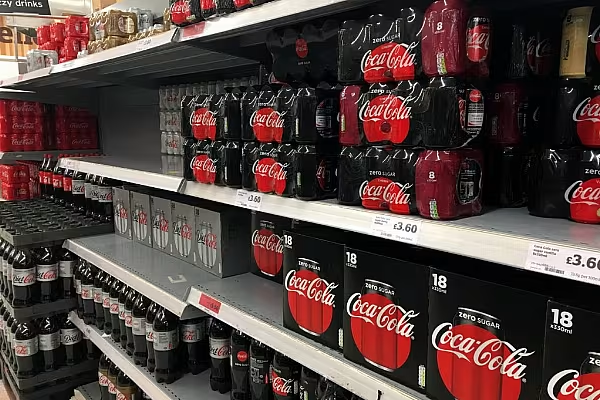The UK sugar tax comes into effect on Friday, joining a number of other countries, including Mexico, France and Norway, which have already introduced similar taxes on high-sugar drinks.
The new levy, which was announced in March 2016, will add £0.18 per litre on drinks containing 5g or more of sugar per 100ml, and £0.24 per litre on drinks containing 8g or more.
But what effect will the introduction of the tax have on consumers, manufacturers, and retailers?
Britain's Treasury said that sugar content in the country's drinks has already been cut by 45 million kg per year, as over 50% of manufacturers have reformulated their products to be below the levy's sugar threshold.
“The grocery industry has reached a tipping point with sugar," said Anna Masing, head of food and beverage at research firm Stylus.
"Consumers globally are seeking healthier lifestyles and brands have to adapt to these new attitudes and desires. In the UK, more than two thirds (72%) of UK shoppers are buying healthy food – lower sugar, salt, fat or calories – according to IRI."
"This isn’t simply a case of brands looking to avoid paying tax," she added. "We’re seeing a real sea change with brands of all sizes exploring new product and flavour innovation from low-sugar soft drinks."
Product Reformulation
According to Euromonitor International, global purchasing of sugar will rise by 14.4 million tonnes by 2020, with one of the main sources of this growth being soft drinks, such as carbonates and juice.
The organisation added that this figure will continue to grow if product formulations remain unchanged, however, the introduction of the new levy in the UK had already initiated a shift in the industry.
“The sugar tax has prompted manufacturers to reformulate their products in advance of the levy, by reformulating those brands that belong to the main sugar category ‘culprits’, such as carbonates and juice drinks, to reduce their sugar levels below the tax-applicable threshold of five grams per 100ml," said Florence Schmit, research analyst at Euromonitor International.
In the UK, AG Barr - the maker of Irn-Bru and Rubicon juices - drastically cut the sugar content in its drinks, and now says that 99% of its portfolio will be out of scope of the soft drinks levy.
Similarly, Ribena and Lucozade underwent reformulations last year to reduce sugar.
As well as big brands, retailers have also had to look at their product ranges. The country's biggest supermarket chain Tesco said earlier this week that its own-brand drinks won't be affected by the levy, as it has been reformulating its portfolio over the past few years to reduce sugar content.
Similarly, carbonated beverages made by rival supermarket chains Asda and Morrisons will also be unaffected, leaving Sainsbury's as the only 'big four' retailer facing price increases on its private-label soft drinks.
Increasing Choice
While many drinks companies have adapted their recipes ahead of the UK sugar tax, others have looked to increase choice or promote alternative options.
Britvic says that it has seen increased sales of its no-sugar Pepsi Max, ending 2017 with a record high market share. The product was the core focus of all Pepsi advertising in the UK last year, responding to growing consumer demand for low-sugar products.
A similar approach has been taken by Coca-Cola, promoting its Diet Coke and Coke Zero Sugar brands, which will be unaffected by the sugar tax, and introducing new low-sugar drinks such as Fuzetea and Honest Coffee.
However, the drinks giant has taken a different path with its Coca-Cola Classic brand, which accounts for 14% of total carbonate volumes in the UK, according to Euromonitor International.
Instead of product reformulation, Coke has introduced a number of new smaller pack sizes for its classic beverage, reducing the price and offering more options for shoppers.
Jonathan Davison, consumer analyst at GlobalData, says that many soft drinks companies have been debating over the past two years whether to reformulate their products and risk jeopardising consumer loyalty, or change nothing and risk pricing consumers away.
"The most effective strategy could well be to do both," said Davison. "Appease the loyal fans of core brands like Coca-Cola, for whom taste is everything, by keeping ingredients the same - whilst offering a plethora of new sugar-free alternatives like Coke Zero Sugar."
"This effectively provides companies with a 'safety net' of products protected from taxation and, crucially, also ensures consumers still have an all-important choice," he added. "Take that away and then the entire industry suffers."
© 2018 European Supermarket Magazine – your source for the latest retail news. Article by Sarah Harford. Click subscribe to sign up to ESM: The European Supermarket Magazine.














